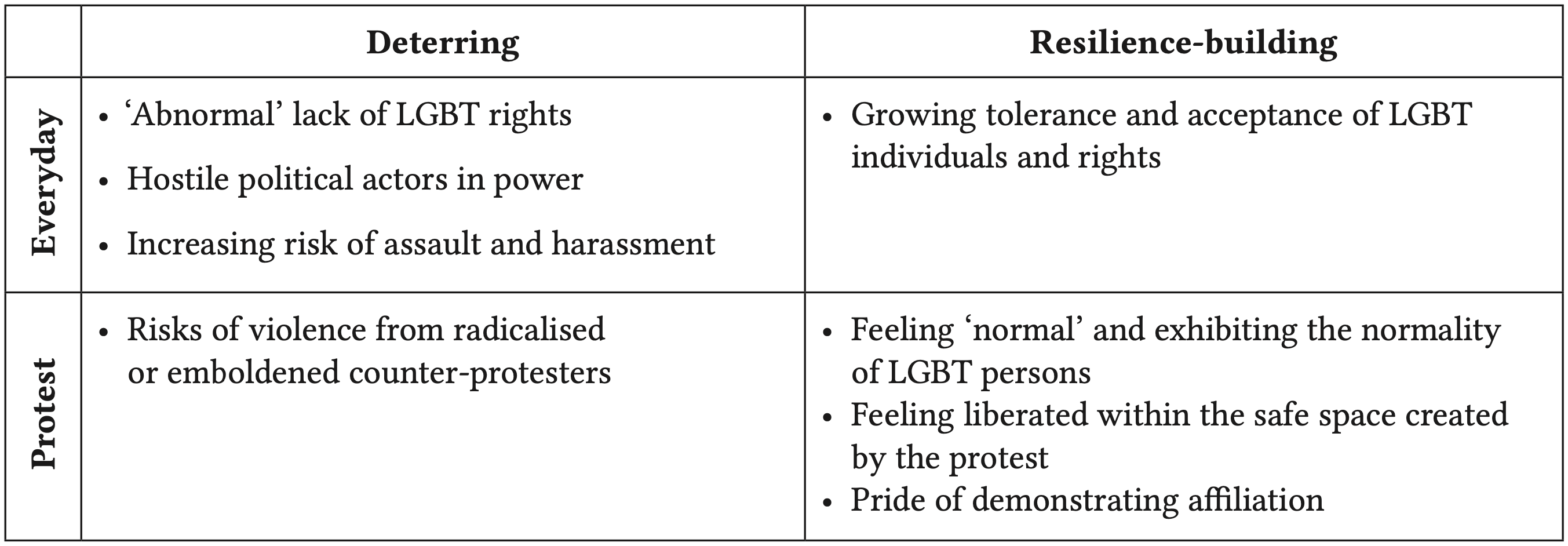Important links
Abstract
Illiberal regimes and societies test resilience and provoke resistance, especially from targeted minority groups. But this abstraction can obscure the complexity of specific events and participants’ emotional motivation. What are the emotional and cognitive responses of protest participants within illiberal contexts? This article investigates this question by focusing on LGBT-rights protest participants in contemporary Poland. Using testimony from in-depth semi-structured interviews with participants from 2019 equality marches, we identify emotional and cognitive responses that centre around a quest for normalcy. Illiberal politics in Poland, especially when contrasted with perceptions about LGBT acceptance in neighbouring countries, have made everyday life ‘abnormal’, whereby LGBT individuals fear increasing violence and feel unable to act normally. Protest participation opens a space where LGBT individuals and allies can feel normal. This experience of normalcy effectively claims recognition of one’s ‘normal’ humanity. In turn, this builds resilience within participants to endure the deterring effects of everyday life and to continue their advocacy for LGBT rights.
Important figures



Citation
@article{hrckova2021everyday,
title={The everyday abnormal and the quest for normalcy: How Polish equality marches build protester resilience},
author={Hrckova, Jana and Zeller, Michael C},
journal={Intersections. East European Journal of Society and Politics},
volume={7},
number={4},
pages={104--123},
year={2021}
}